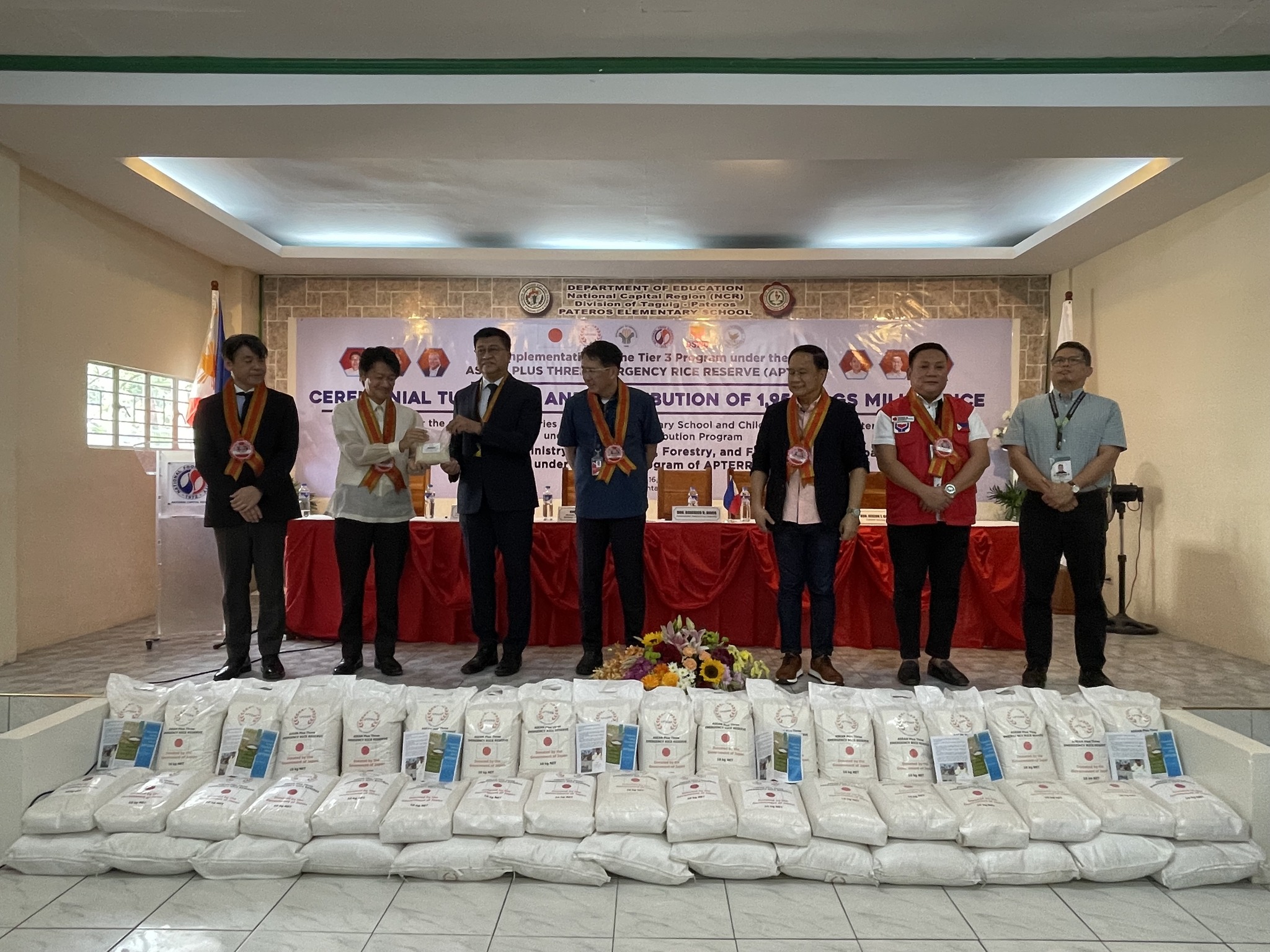
The Embassy of Japan in the Philippines turns over 20 metric tons of rice to Pateros Elementary School on Thursday, November 16, 2023. Photo from the Embassy of Japan in the Philippines.
MANILA, Philippines — Pateros Elementary School received a donation of 20 metric tons of rice from Japan this Thursday, the Embassy of Japan in the Philippines said.
According to the embassy, the donation is part of the School Distribution Programme (SDP) initiated by the Government of Japan under the Asean (Association of Southeast Asian Nations) Plus Three Emergency Rice Reserve (APTERR) Tier 3 Program.
The Tier 3 Program involves the utilization of stored emergency rice reserves for critical situations and humanitarian responses, such as malnourishment eradication and poverty alleviation, to ensure food security in Southeast Asia.
The embassy said that the primary school in Metro Manila is the SDP’s first beneficiary in the country.
The program’s main objective is to give food assistance to children actively enrolled in schools, the embassy noted.
The SDP supports the Department of Social Welfare and Development (DSWD)’s School Feeding Program, which seeks to contribute to the nutritional well-being of vulnerable students and allow them to continue their education with improved health.
The embassy said about 1,953 kindergarten and preparatory students will benefit from SDP, with each of them expected to receive a 10-kilogram pack of rice.
Minister for Economic Affairs Nihei Daisuke led the turnover for the donation. In his speech, he reaffirmed the Japanese government’s support for such initiatives.
To ensure regional food sufficiency, he also pledged further collaboration with the National Food Authority (NFA), Department of Agriculture, DSWD, and APTERR secretariat.
The embassy noted that NFA Administrator Roderico R. Bioco, Pateros Mayor Miguel Ponce III, APTERR Secretariat General Manager Choomjet Karnjanakesorn, and Ministry of Agriculture Forestry and Fisheries Japan Director Okuhiira Kenji were as well present during the turnover.
Under APTERR, Japan turned over 300 metric tons of rice to the families affected by the unrest of the Mayon Volcano in August 2023.
RELATED STORIES
PH ready to ensure food security with Asean partners — Bongbong Marcos